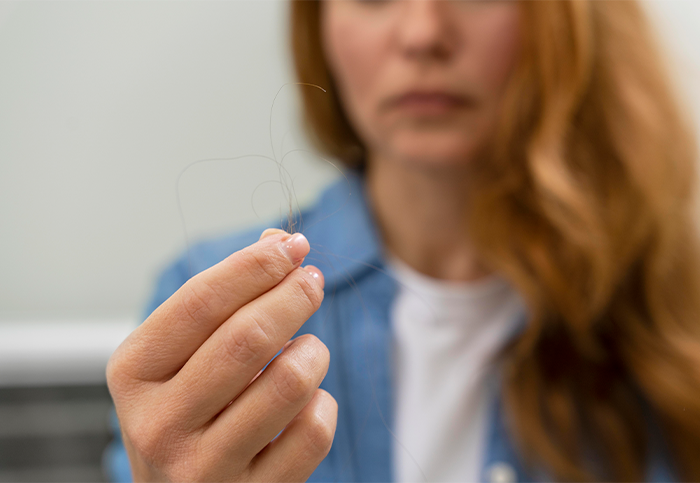Herbal Supplements to manage PCOS Symptoms

PCOS is a lifestyle-related health issue and can only be managed better by adapting a healthy lifestyle.
PCOS is a hormonal condition that can cause irregular menstrual cycles, fertility difficulties, excess male hormone levels in women, and small follicles on the ovaries.
The hormone that mainly gets imbalanced in PCOS is an androgen hormone. It is a male hormone that controls the development of male traits. Women also produce androgens but in small quantities. However, those with PCOS have higher levels of androgens which can prevent ovulation and cause an irregular menstrual cycle.
Another hormone, insulin, may play a role in the body's enhanced androgen production. Insulin resistance is common in PCOS women. Women who are overweight or obese, have poor dietary and exercise habits or have a family history of type 2 diabetes are more prone to developing this condition. It can also affect a woman’s ability to have a child (infertility).
What are the symptoms of PCOS?
Those suffering from PCOS show the following major symptoms:
• Absence of or irregular menstrual cycle
• Excessive hair growth on the body
• Acne
• Weight gain or obesity
• Male pattern baldness
• Mood swings
What causes PCOS?
The exact causes aren’t yet known, but androgen levels that are higher than normal are one of the significant factors. Some other factors include;
• Being overweight or obese
• Family history
• Insulin resistance
How diet can help to manage PCOS?

There are two ways that diet affects PCOS. It helps in weight management and enhances Insulin sensitivity.
1. A low glycemic index (GI) diet: The body digests foods with a low GI more slowly, and does not cause insulin levels to rise as much or as quickly as it does with high GI foods. Low GI food sources include whole grains, legumes, nuts, seeds, fruits, leafy green vegetables, and other unprocessed foods.
2. An anti-inflammatory diet: Anti-inflammatory foods, such as sunflower seeds, flax seeds, pumpkin seeds, sesame seeds, berries, fatty fish, leafy greens, and extra virgin olive oil, are rich in omega-3 and omega-6 fatty acids which help to reduce inflammation-related symptoms, and regulate hormonal balance in the body.
Foods to avoid:
In general, people on a PCOS diet should avoid unhealthy foods which include:
• Refined carbohydrates, such as pastries and white bread
• Fried foods, such as fast food
• Sugary beverages, such as sodas and energy drinks
• Processed meats
• Solid fats, including margarine
• Excessive intake of red meat and dairy products because insulin resistance may be increased due to its high consumption
Role of physical activity in PCOS:

Moderate exercises, such as brisk walking, jogging, or cycling, can all help with PCOS symptoms. Such exercises help to improve the body's insulin sensitivity and ultimately lower the risk of type 2 diabetes.
Doing 30 minutes of physical activity or more in a day can also help with weight management, symptoms of depression and anxiety, as well as in improving the regularity of the menstrual cycle and ovulation.
How do dietary supplements help in managing PCOS?

Consuming herbal supplements is a good choice to maintain the hormonal balance in the body. They not only help in reducing the PCOS symptoms and improving our mood but also provide energy to keep us activated.
Evening Primrose Oil is a natural herb, rich in omega-6 fatty acids. It helps in regulating the hormonal balance in the body, maintains skin hydration, and reduces acne.
Nutrifactor’s Femrose Evening Primrose Oil and Femrose 500 (softgels) contain a decent amount of Evening Primrose Oil, the best supplements for PCOS patients. Also, contain GLA and LA which help reduce inflammation and minimize the symptoms of PCOS. These ingredients are also involved in regulating hormonal balance and supporting women’s health.
One can take two softgels of Femrose 500 or ½ teaspoon (2.5 ml) of Femrose Evening Primrose Oil daily as a dietary supplement preferably after the meal or as directed by a healthcare professional.
References:
• https://www.pennmedicine.org/updates/blogs/fertility-blog/2020/march/five-myths-about-pcos
• https://www.cdc.gov/diabetes/basics/pcos.html
• https://www.medicalnewstoday.com/articles/323002
• https://exerciseright.com.au/best-types-exercise-pcos/



